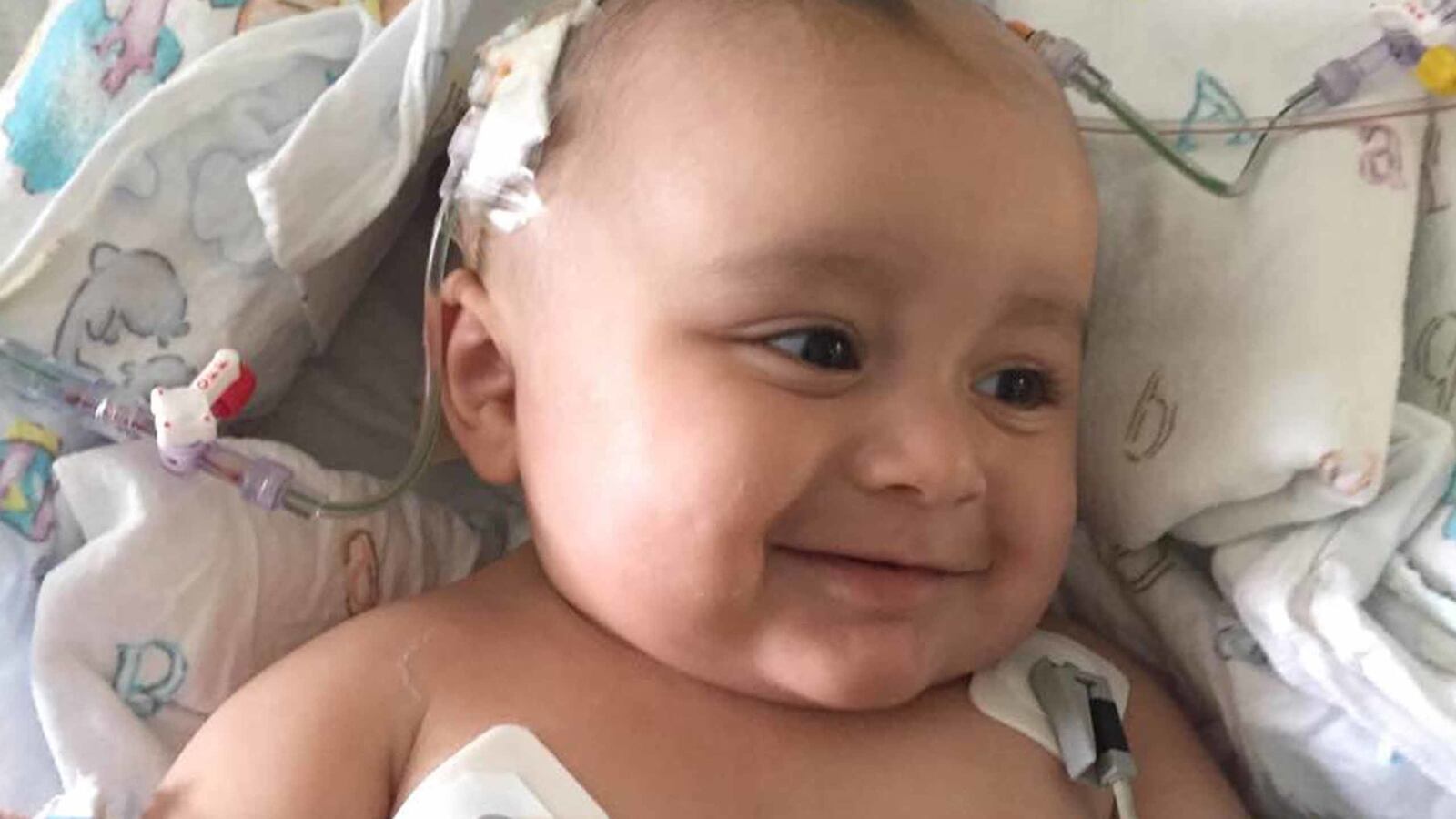The letter from the insurance company is addressed to Connor Richardson, age nine months, who is presently being treated for a rare and aggressive brain cancer.
October 11, 2017
Dear Connor Richardson,
As HIP Health Plan of New York, we try hard to provide you with access to quality health care services that meet your needs. When we decide to deny coverage for treatment or service, we want to make sure you know why…
We look over the clinical and medical information given to us and check the criteria, guidelines and the rules of your health coverage policy to make our decision.
When we reviewed the information given to us about this request, we have decided to deny coverage of the following medical service(s) or item(s) that you or your provider asked for: Inpatient Hospitalization to St. Jude Hospital from 10/4/2017-10/10/2017. We have determined that the service(s) are not medically necessary.

This letter is your Initial Adverse Determination. This means we are denying your quest for coverage of the requested service(s).
The letter then offers the reason for the denial in a paragraph that is in bold and further set off by quotation marks. The letter here speaks to Connor as if he were his own parent.
“Your child is a 9 month old boy who was diagnosed with a high grade brain tumor. Your child was treated with surgical removal of his tumor at Stony brook Hospital. After your son was discharged you enrolled him in a clinical trial at St. Jude’s hospital. The principal investigator has requested medications including methotrexate, cisplatin, cyclophosphamide, vincristine in combination with an investigational medication, alisertib. This combination of medications is not the standard of care for this type of cancer, and is considered experimental and investigational at this time, as evidence-based guidelines do not exist to confirm its effectiveness for his brain tumor. Therefore, this request for clinical trial treatment at St. Jude’s hospital is not medically necessary and is denied.”
The ensuing sentence is again in standard typeface.
If you decide to have this service, you may have to pay it yourself.
The letter is addressing Connor as if he could read.
“He’s smart, but he’s not that smart,” says his father, retired NYPD Officer Wayne Richardson.
Wayne notes that as a cop he has had HIP health insurance since 1981 and has never been hospitalized. His son, Connor, was only seven months old when he had an uncharacteristic bout of crying through the night. His eyes popped wide open.
“Not like a regular baby, like when somebody dies,” Wayne recalls.
Connor’s mother, Janaida, took him to a small hospital near their Long Island home. The baby proved to have a brain tumor that was stemming the flow of fluid to his spine. He underwent emergency surgery.
The impinging growth was found to be an aggressive teratoid rhabdoid tumor, which afflicts just one out of 1.1 million people each year. Connor subsequently underwent two major operations at the larger Stony Brook University Hospital, one through the front of his skull, the second through the back. The neurosurgeon said he had managed to remove all of the tumor and reported that no cancer had been found in Connor’s spine.

During a follow-up treatment at St. Jude Children’s Research Hospital in Memphis, doctors found that the tumor had returned. They also discovered cancer in Connor’s spine. They enrolled Connor in a clinical trial in which an experimental medication is administered in combination with four other drugs.
Wayne defines “medically necessary” in terms that become morally incontestable when you see love made manifest in photos of Connor gazing up at his father or snuggled in his mother’s arms.
“He’ll die if you don’t do it,” Wayne says of the treatment.
Since the clinical trial cannot guarantee it will save Connor’s life, the insurance company saw an opportunity to save money. Wayne read the summary notations “Type of Review: Prospective” and “Type of Denial: Medical Necessity” at the top of the letter. The twisted logic seemed to be that if something offers only a chance of survival, it is not necessary.
Wayne voiced what any parent would feel.
“You don’t care what it costs.”
Fortunately for Connor, St. Jude is that rare medical institution that offers its services at no charge, even supplying patients and their families with transportation and food vouchers. Connor has embarked on his chemotherapy with no cause for his family to worry about the expense.
But Connor’s family understands that the payments the insurance company is denying would otherwise support St. Jude.

“You’re taking away from them and their research… because the insurance doesn’t want to pay,” Wayne said.
Wayne plans to contest the denial, and the letter does tell him how to file an appeal. Meantime, the insurance company will not pay for the chance to save Connor’s life. And the money the company saves will go in its coffers rather than toward treating and maybe curing catastrophically sick kids.
Wayne encountered few, if any, criminals who were that icy among the hundreds he arrested as a cop.
“Even they had a heart,” Wayne said on Tuesday.
One of Wayne’s former partners saw the Dear Connor letter and at least managed some cop humor.
“What are you doing opening Connor’s mail?” the cop asked Wayne.






